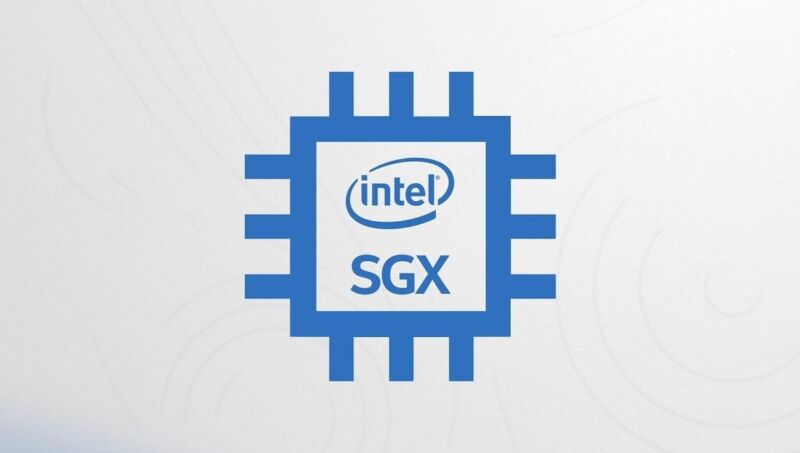
Enlarge (credit: Intel)
Intel’s latest generation of CPUs contains a vulnerability that allows attackers to obtain encryption keys and other confidential information protected by the company’s software guard extensions, the advanced feature that acts as a digital vault for security users’ most sensitive secrets.
Abbreviated as SGX, the protection is designed to provide a fortress of sorts for the safekeeping of encryption keys and other sensitive data, even when the operating system or a virtual machine running on top is maliciously compromised. SGX works by creating trusted execution environments that protect sensitive code and the data it works with from monitoring or tampering by anything else on the system.
Cracks in Intel’s foundational security
SGX is a cornerstone of the security assurances many companies provide to users. Servers used to handle contact discovery for the Signal Messenger, for instance, rely on SGX to ensure the process is anonymous. Signal says running its advanced hashing scheme provides a “general recipe for doing private contact discovery in SGX without leaking any information to parties that have control over the machine, even if they were to attach physical hardware to the memory bus.”
Read 17 remaining paragraphs | Comments
